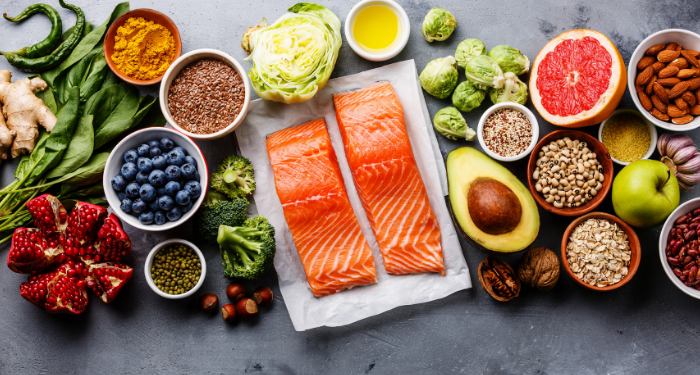
Injuries are an inevitable part of an active lifestyle, whether you’re an athlete or simply someone who enjoys physical activities. Proper nutrition plays a pivotal role in the recovery process, helping your body heal faster and more efficiently. In this article, we will explore essential nutritional strategies for injury recovery to facilitate a smoother and quicker return to your normal activities.
Protein for Tissue Repair
Protein is a cornerstone of injury recovery as it provides the necessary building blocks for tissue repair and regeneration. When you’re injured, your body requires extra protein to heal damaged muscles, tendons, and ligaments. Aim to include lean sources of protein in your diet such as chicken, turkey, fish, lean beef, beans, and tofu. Incorporate protein-rich foods into each meal and snack to promote the healing process.
Anti-Inflammatory Foods
Inflammation is a natural response to injury, but excessive inflammation can delay recovery and cause discomfort. Incorporating anti-inflammatory foods into your diet can help reduce swelling and pain. Foods rich in omega-3 fatty acids, such as fatty fish (salmon, mackerel), flaxseeds, and walnuts, have potent anti-inflammatory properties. Additionally, colorful fruits and vegetables, like berries, cherries, and dark leafy greens, are loaded with antioxidants that combat inflammation.
Nutrient-Dense Diet
To support your body’s healing process, focus on a well-balanced and nutrient-dense diet. Ensure you’re getting an array of vitamins and minerals, including vitamin C, vitamin D, calcium, and zinc. These nutrients play vital roles in bone health and immune function, both of which are crucial during injury recovery. Consider adding citrus fruits, dairy products, leafy greens, and fortified foods to your diet to meet these requirements.
Hydration
Proper hydration is often overlooked during injury recovery, yet it’s essential for the healing process. Water helps transport nutrients to damaged tissues and aids in the removal of waste products from the body. Staying well-hydrated also prevents muscle cramps and supports overall health. Aim to drink at least eight glasses of water a day and adjust your intake based on your activity level and climate.
Collagen-Rich Foods
Collagen is a protein that plays a vital role in the structure of tendons, ligaments, and connective tissues. Consuming collagen-rich foods can potentially aid in the recovery of these structures. Bone broth, chicken skin, and collagen supplements are sources of collagen that may support injury healing. Consult with a healthcare professional before adding supplements to your diet.
Adequate Calories
Injury recovery can increase your body’s energy requirements. It’s essential to consume enough calories to support the healing process and prevent muscle loss. Pay attention to your body’s hunger cues and make sure you’re eating enough to meet your energy needs. Opt for nutrient-dense, calorie-rich foods like nuts, seeds, avocados, and whole grains.
Consult a Registered Dietitian
Every injury and individual is unique, and nutritional needs can vary significantly. Consulting with a registered dietitian or nutritionist can provide you with a tailored nutrition plan specific to your injury and recovery goals. They can help you create a well-balanced diet that meets your energy needs and supports optimal healing.
Conclusion
Nutrition is a fundamental component of injury recovery. By incorporating these nutritional strategies into your diet, you can enhance the healing process, reduce inflammation, and accelerate your return to an active lifestyle. Remember that consistency and patience are key during the recovery phase, and consulting with healthcare professionals can provide you with personalized guidance for a successful recovery journey.




More Stories
Warm-Up and Cool-Down Techniques for Injury Prevention
Technology and Wearables for Injury Prevention
Concussion Prevention and Management